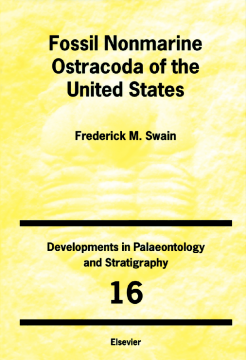
Additional Information
Book Details
Abstract
The geographic and stratigraphic distribution of fossil nonmarine Ostracoda in the United States are summarized in this book, followed by diagnoses of the subject species, references to literature and 34 plates of illustrations.
This work shows the great diversity and usefulness of this interesting class of organisms which are small bivalved aquatic crustaceans that occupy both marine and nonmarine environments. Many are characteristic of estuarine and other tidal habitats, but only a few occupy hypersaline waters. One or two kinds are found in wet soils, or in leaf or flower cups in tropical rain forests. A few live in caves and others are commensal in gills of fish and other aquatic animals. Micropaleontologists have found their shells in many types of sedimentary rocks and have used them for stratigraphic and paleoenvironmental interpretations.
Their relatively rapid rates of evolution have made them useful in subsurface stratigraphy and their sensitivity to environmental changes has provided a means of recognizing variations in rock facies. In nonmarine aquatic rocks they are commonly the most easily recoverable microfossils, and have been widely used in petroleum exploration, notably in China, Russia, Brazil and the western United States.
Ian Boomer
...will undoubtedly be an extremely valuable resource for any micropalaeontologist or environmental earth scientist investigating non-marine sequences of North America.
Marine Micropaleontology, Volume 38
